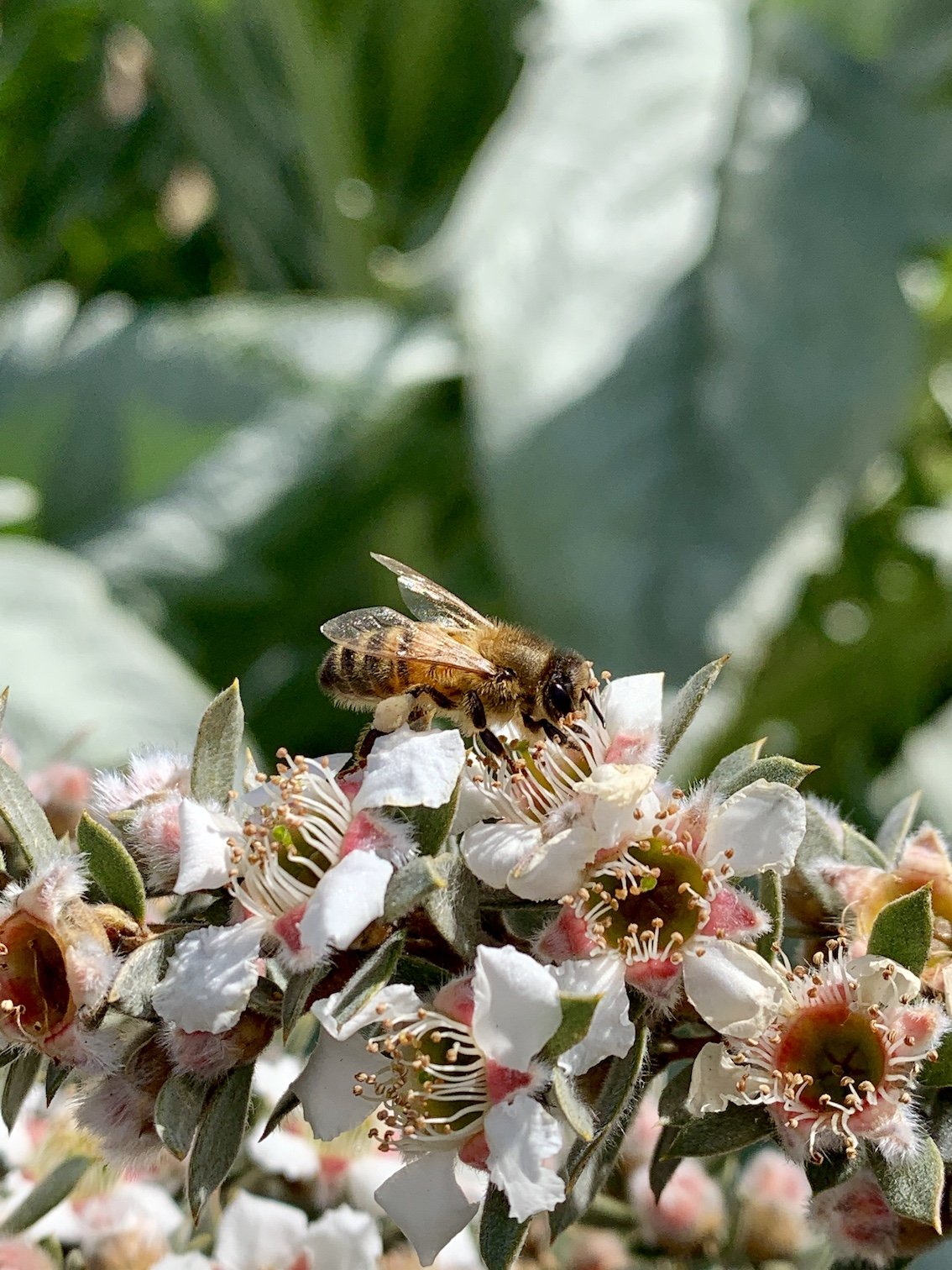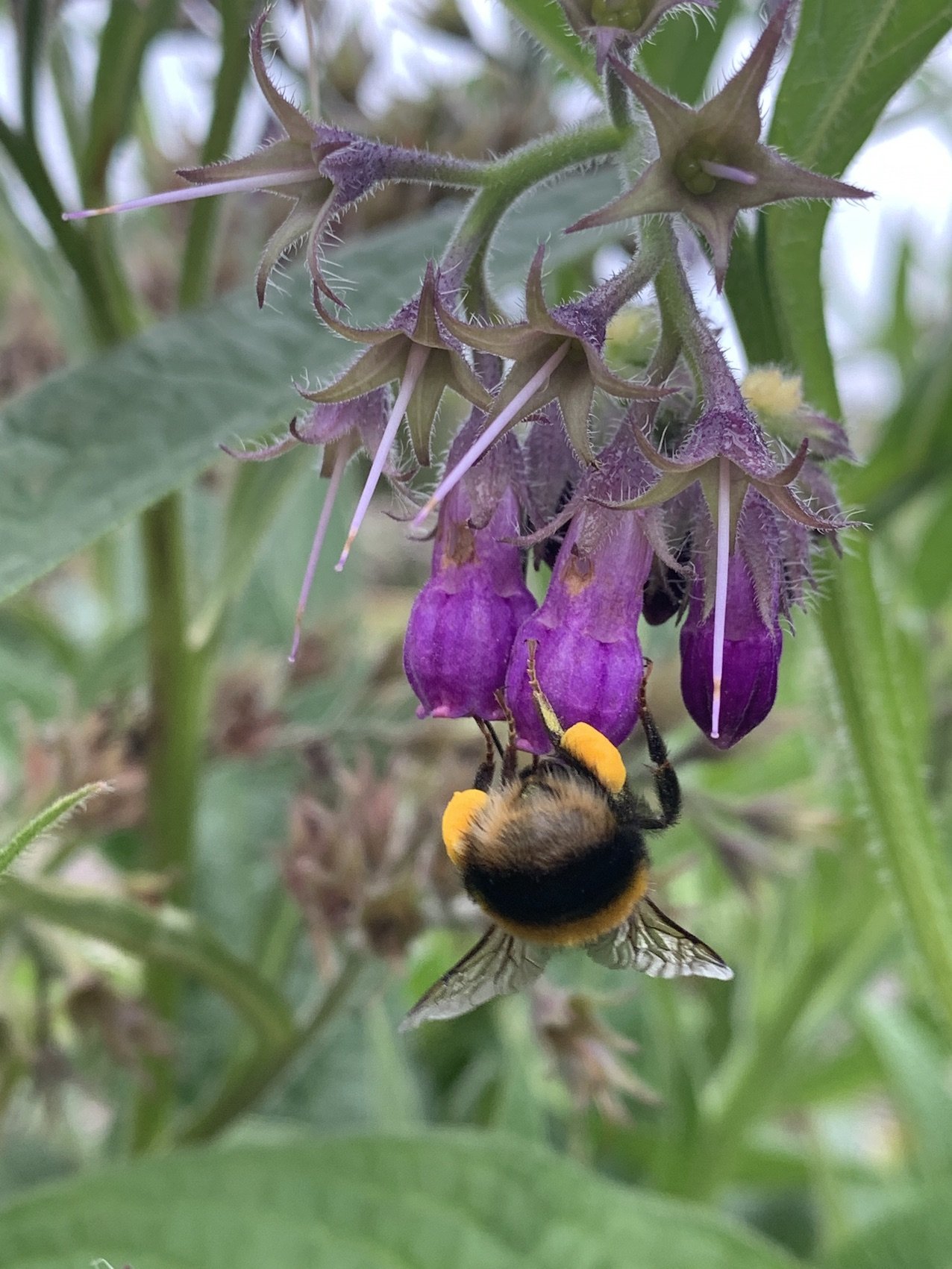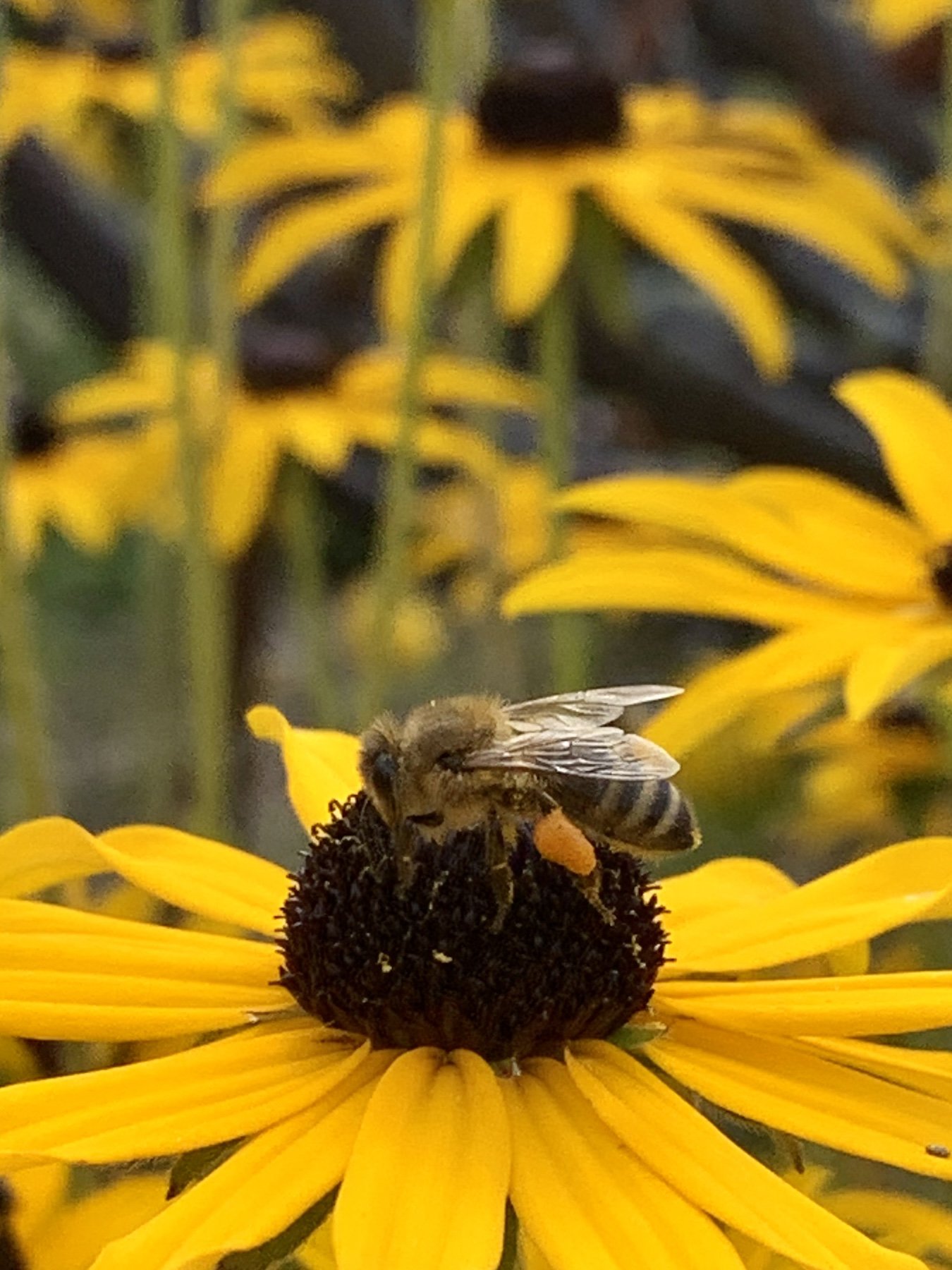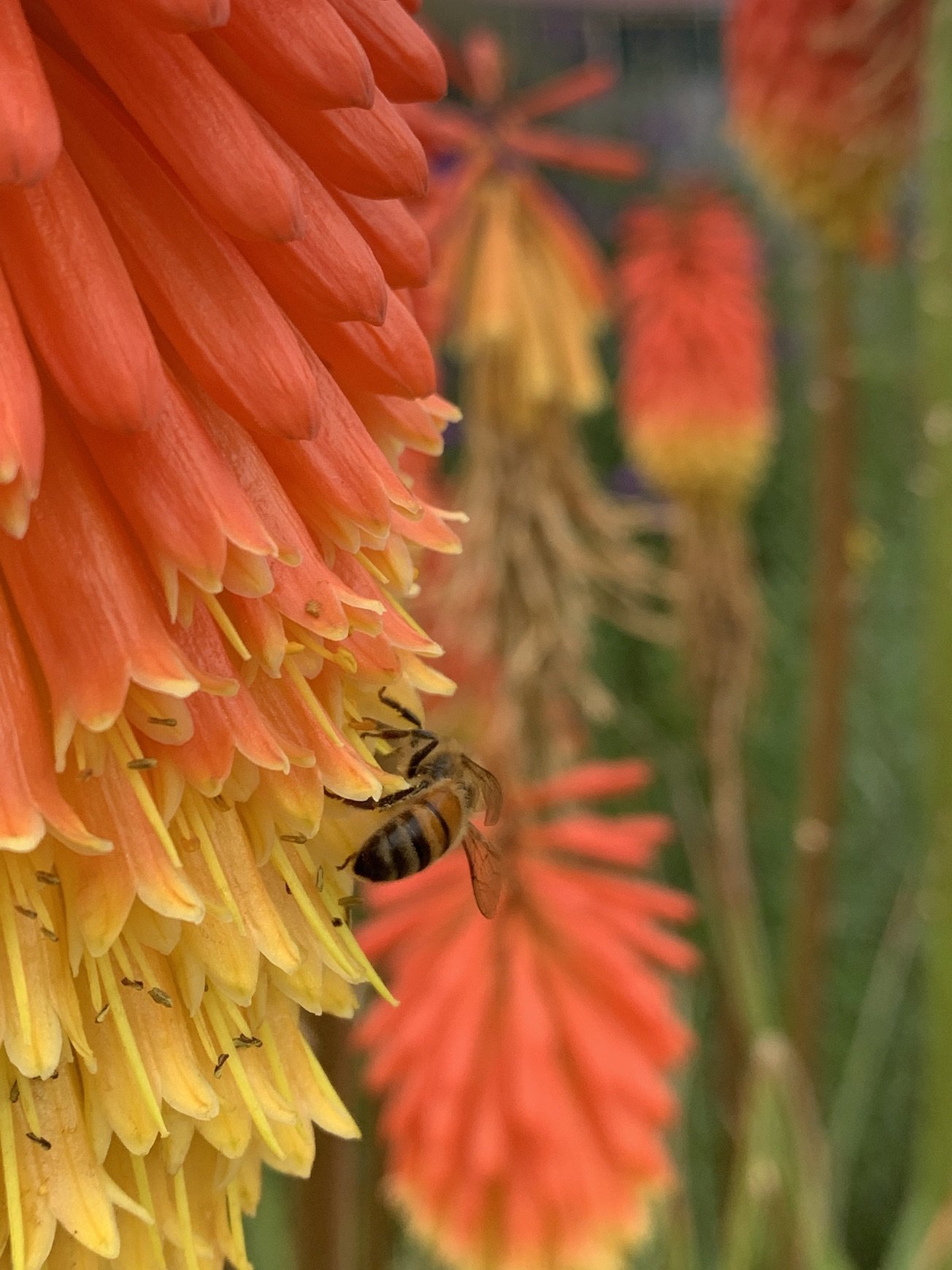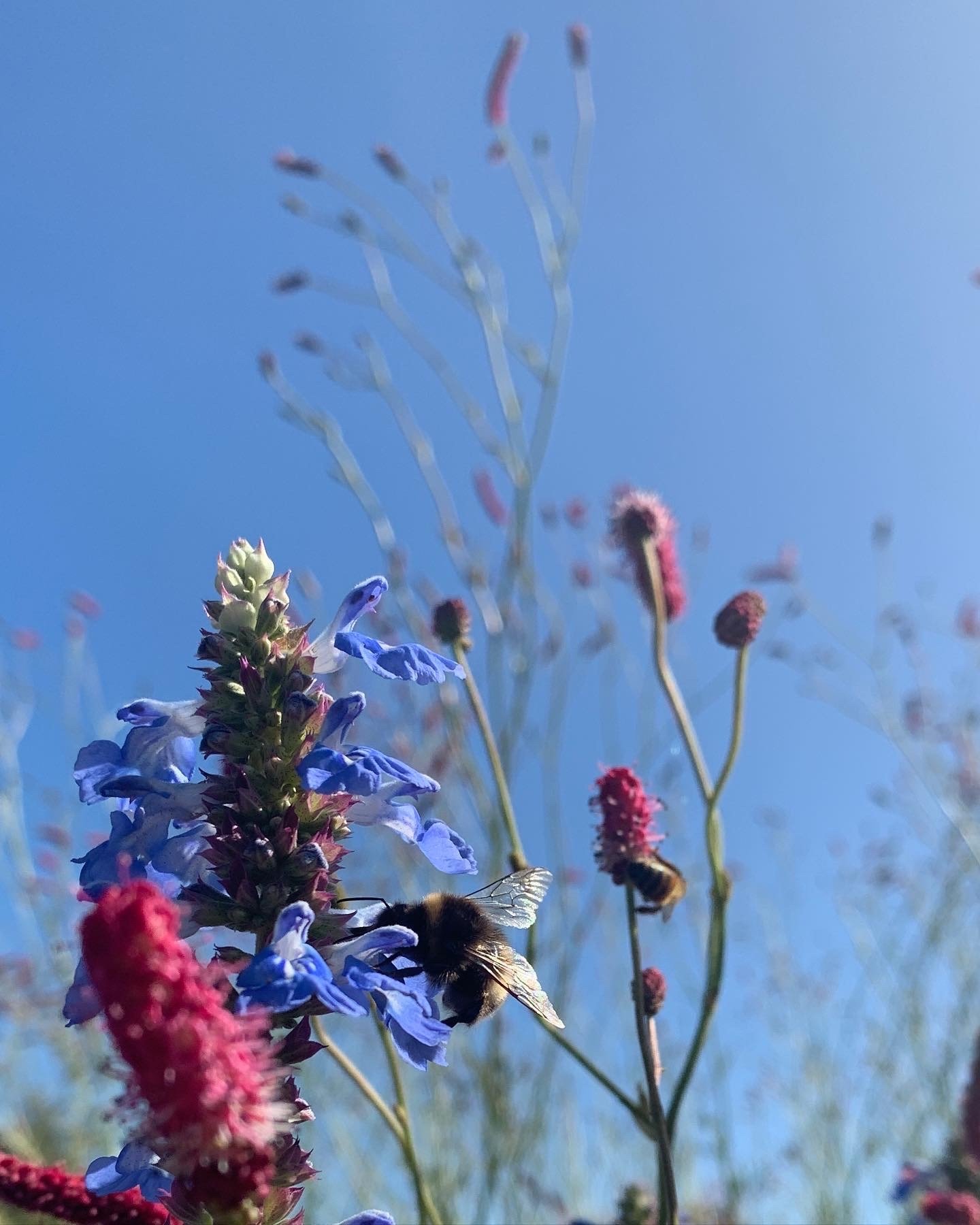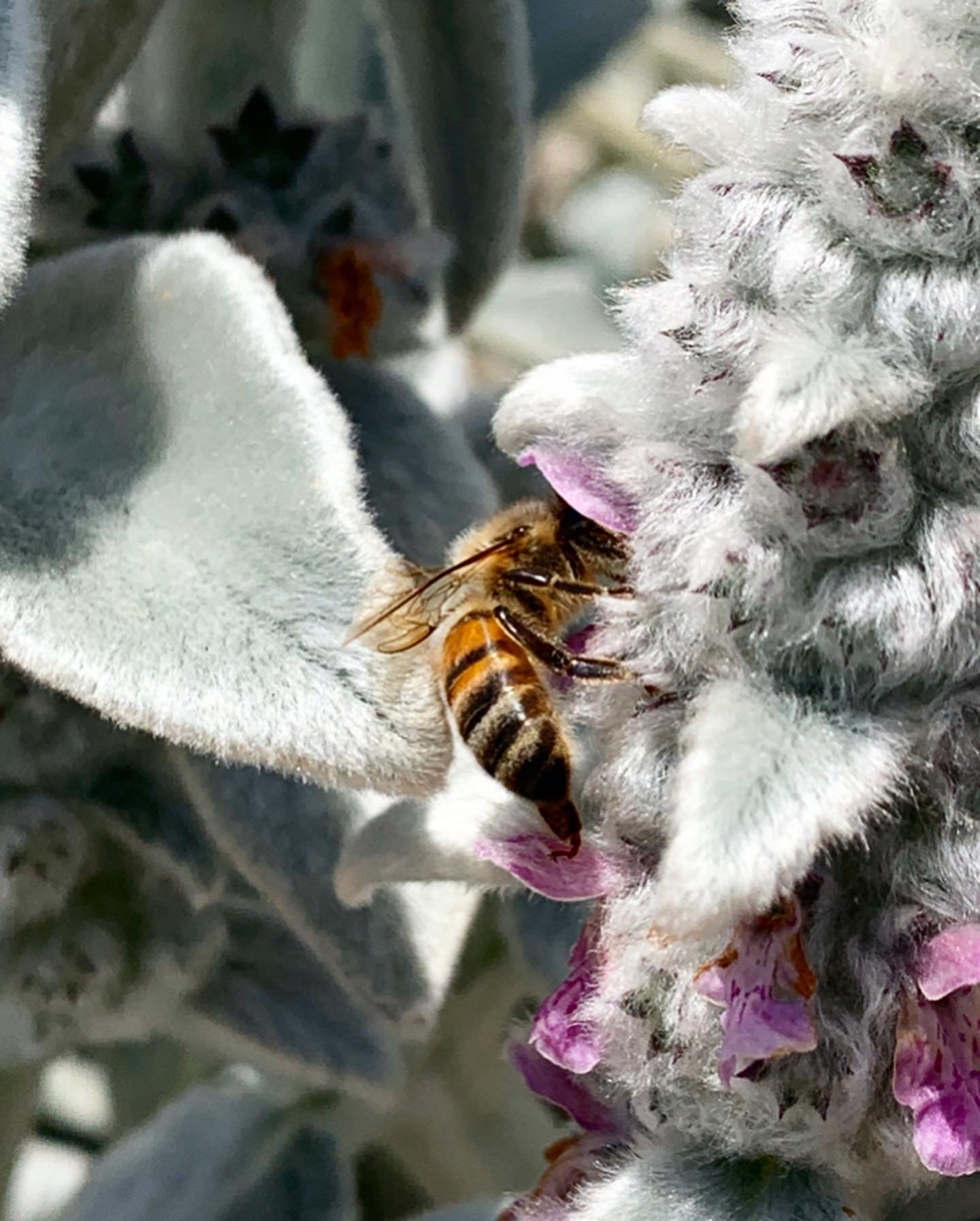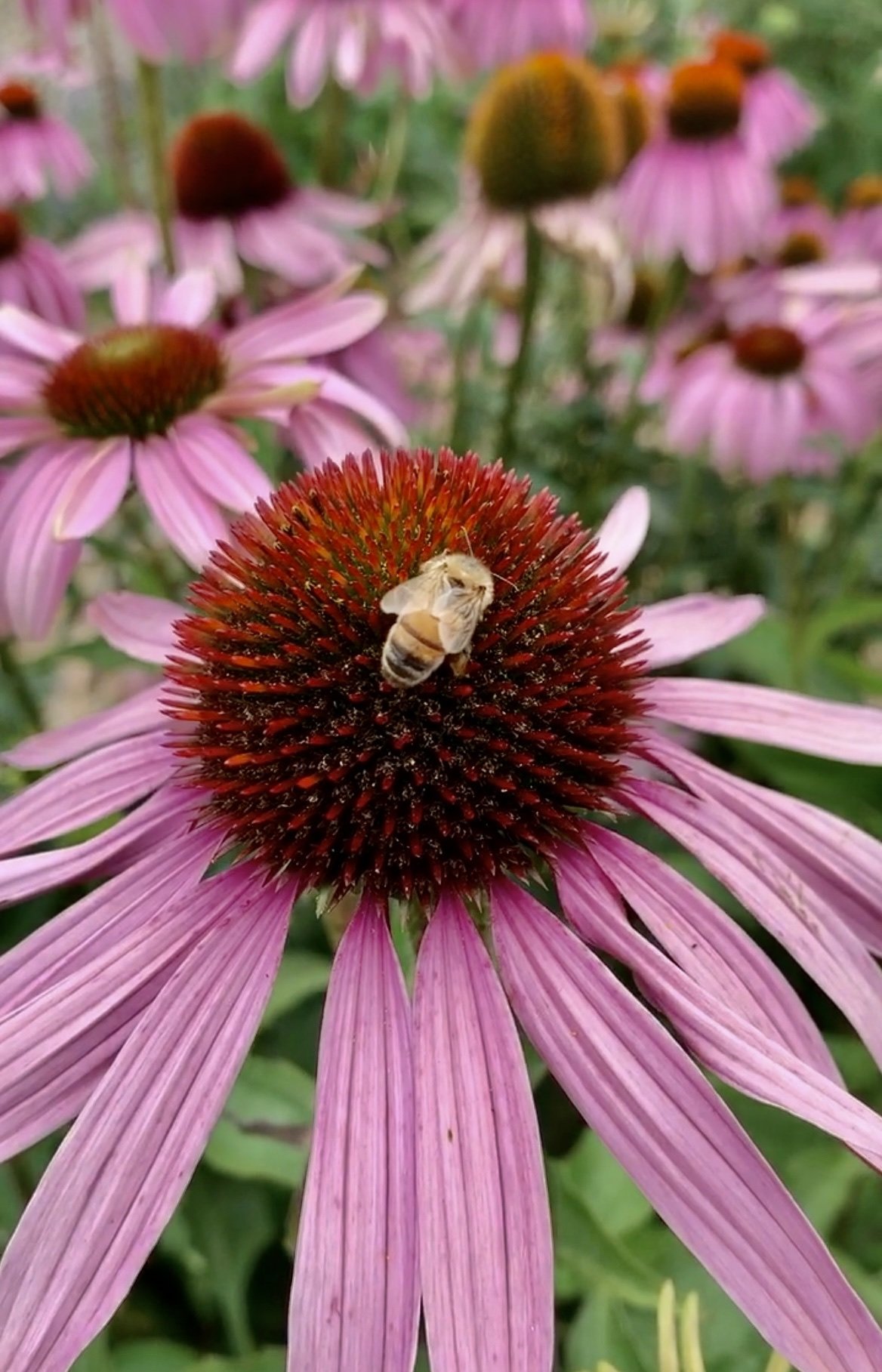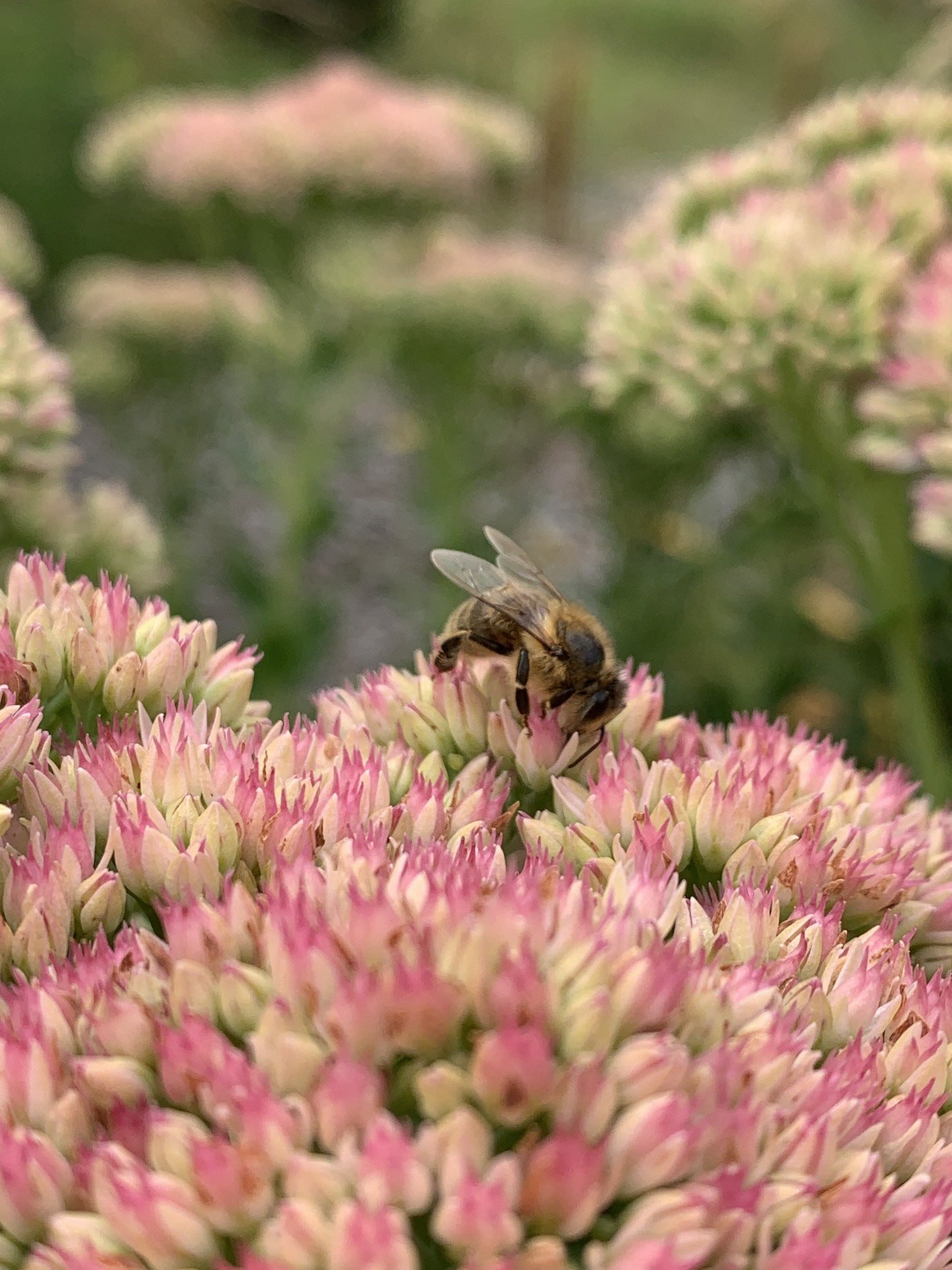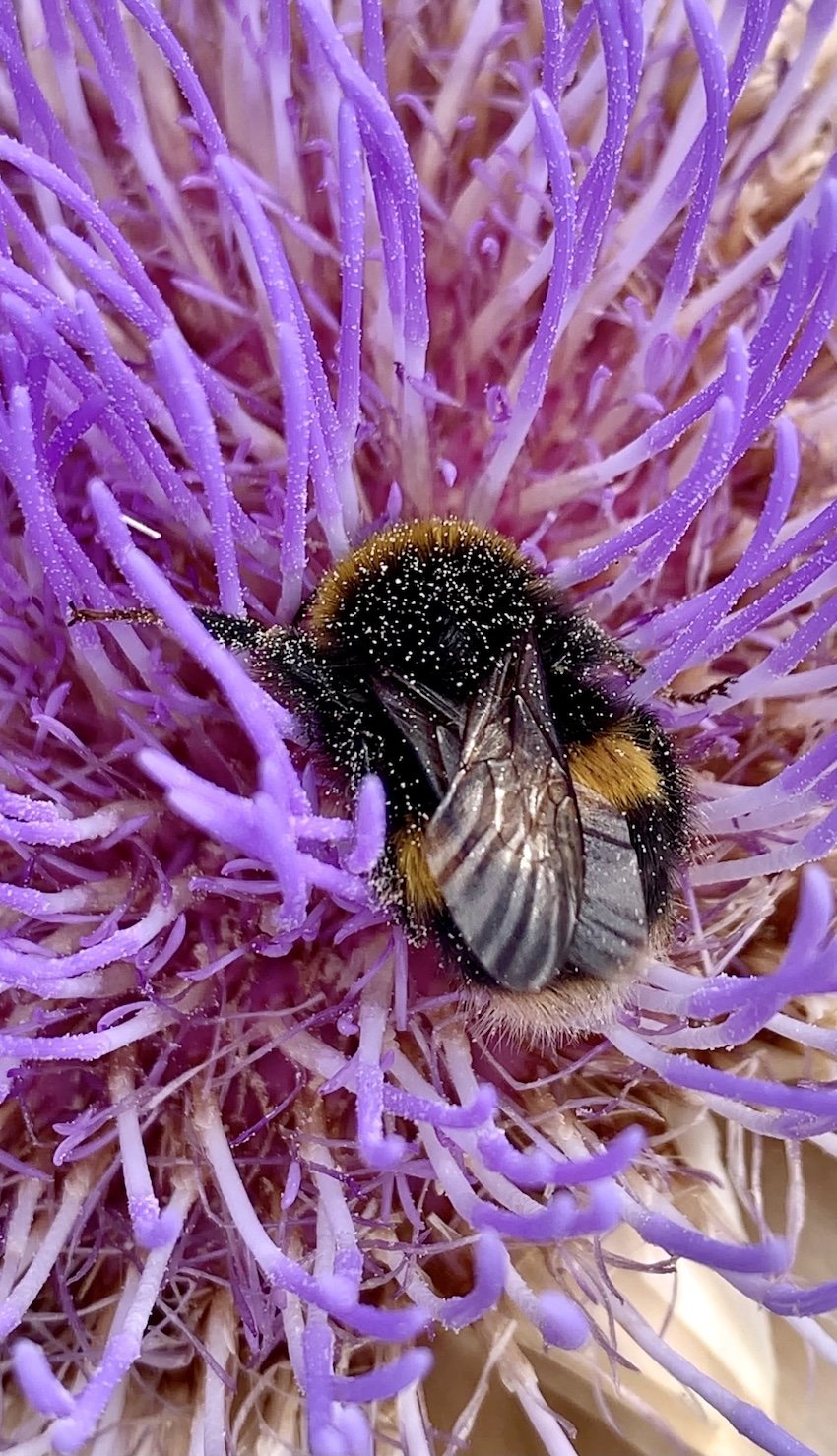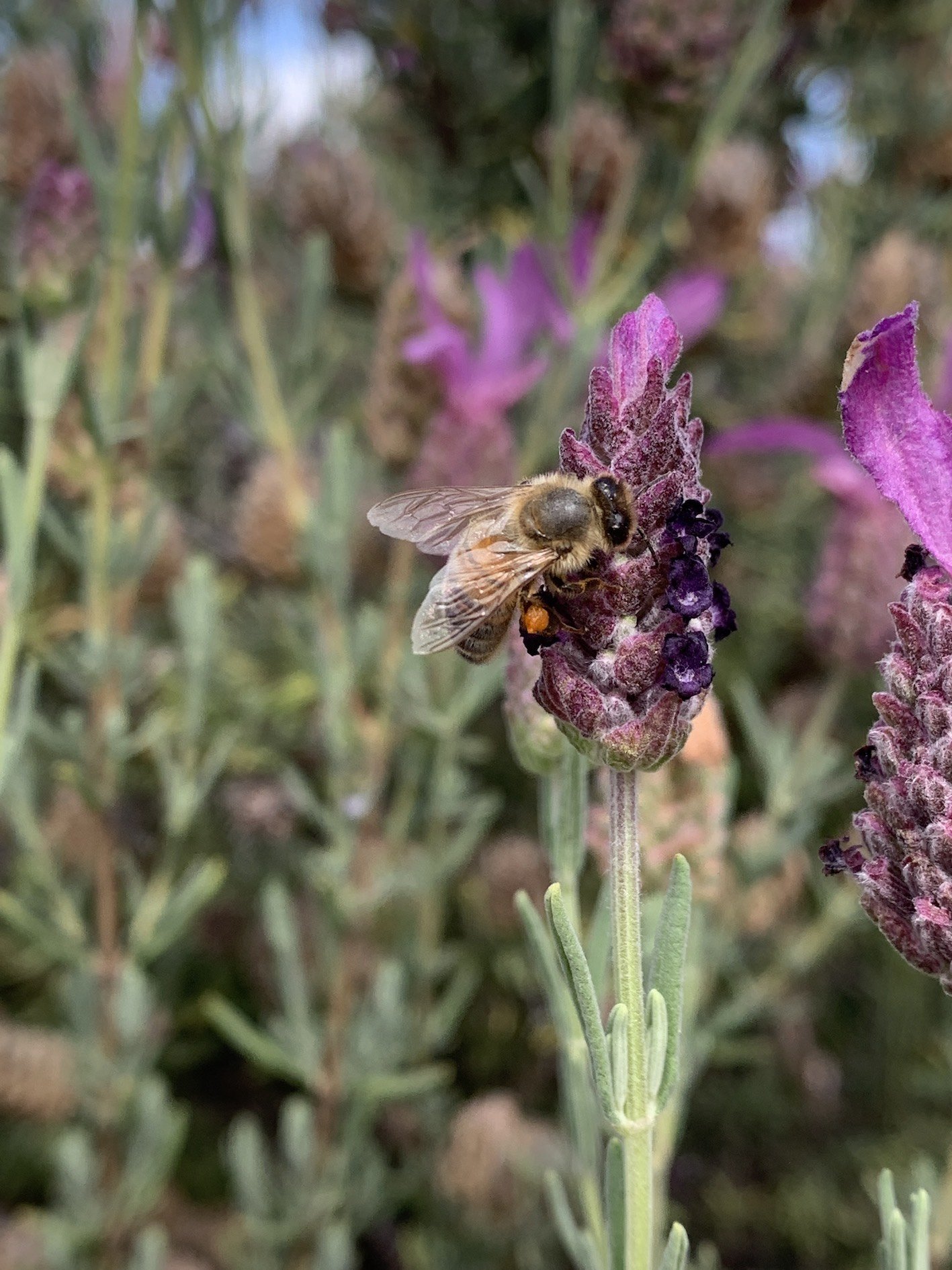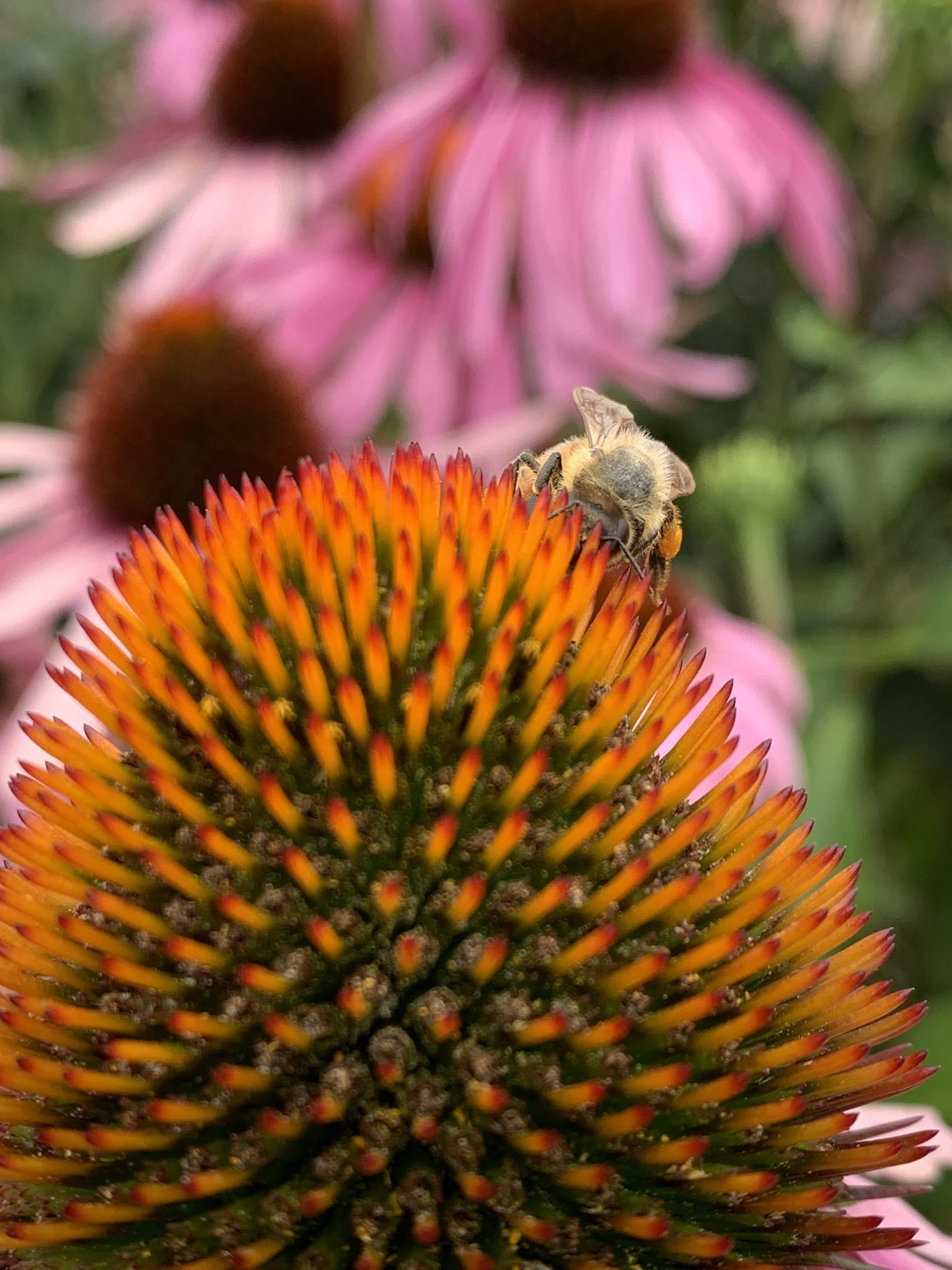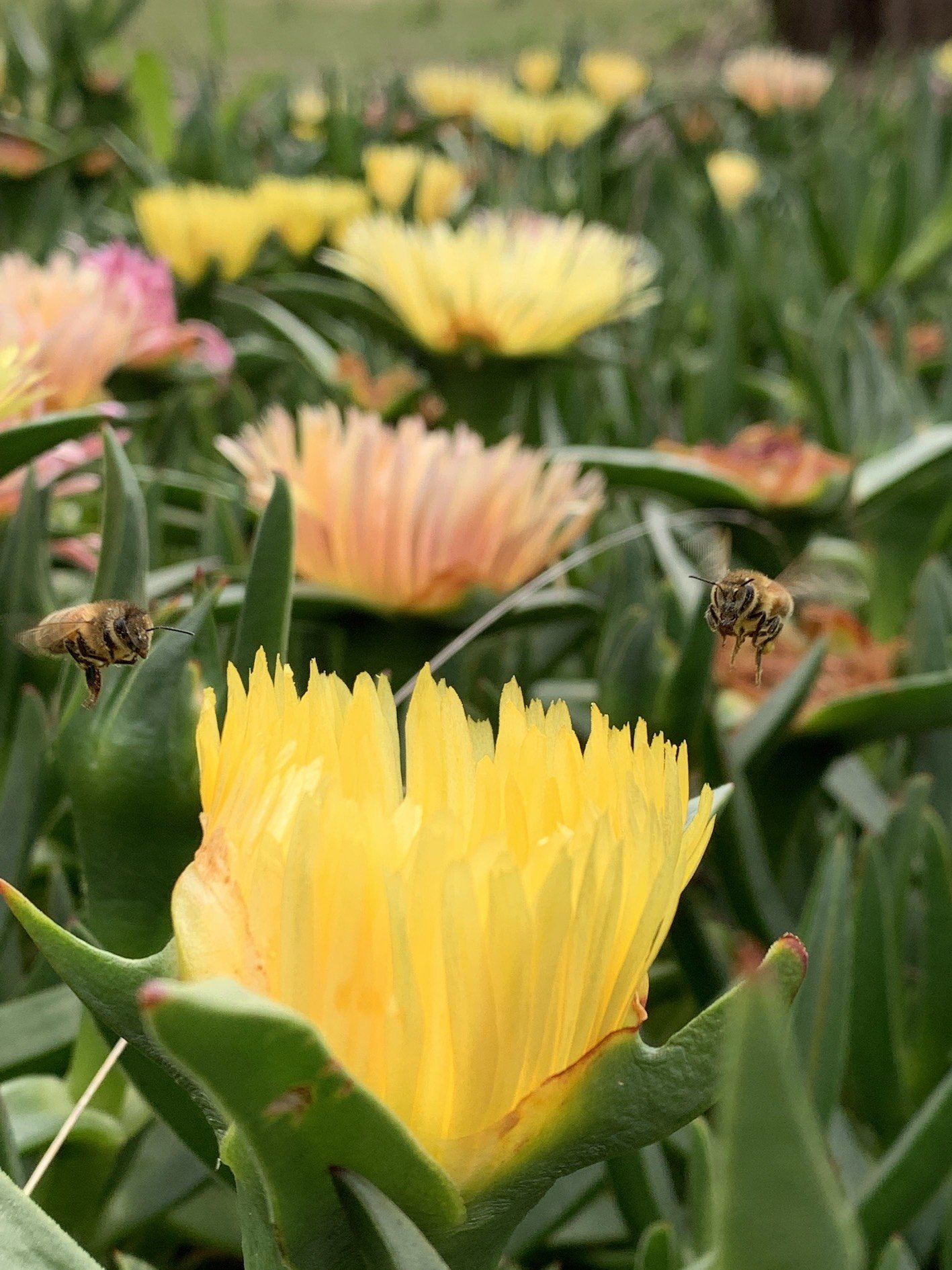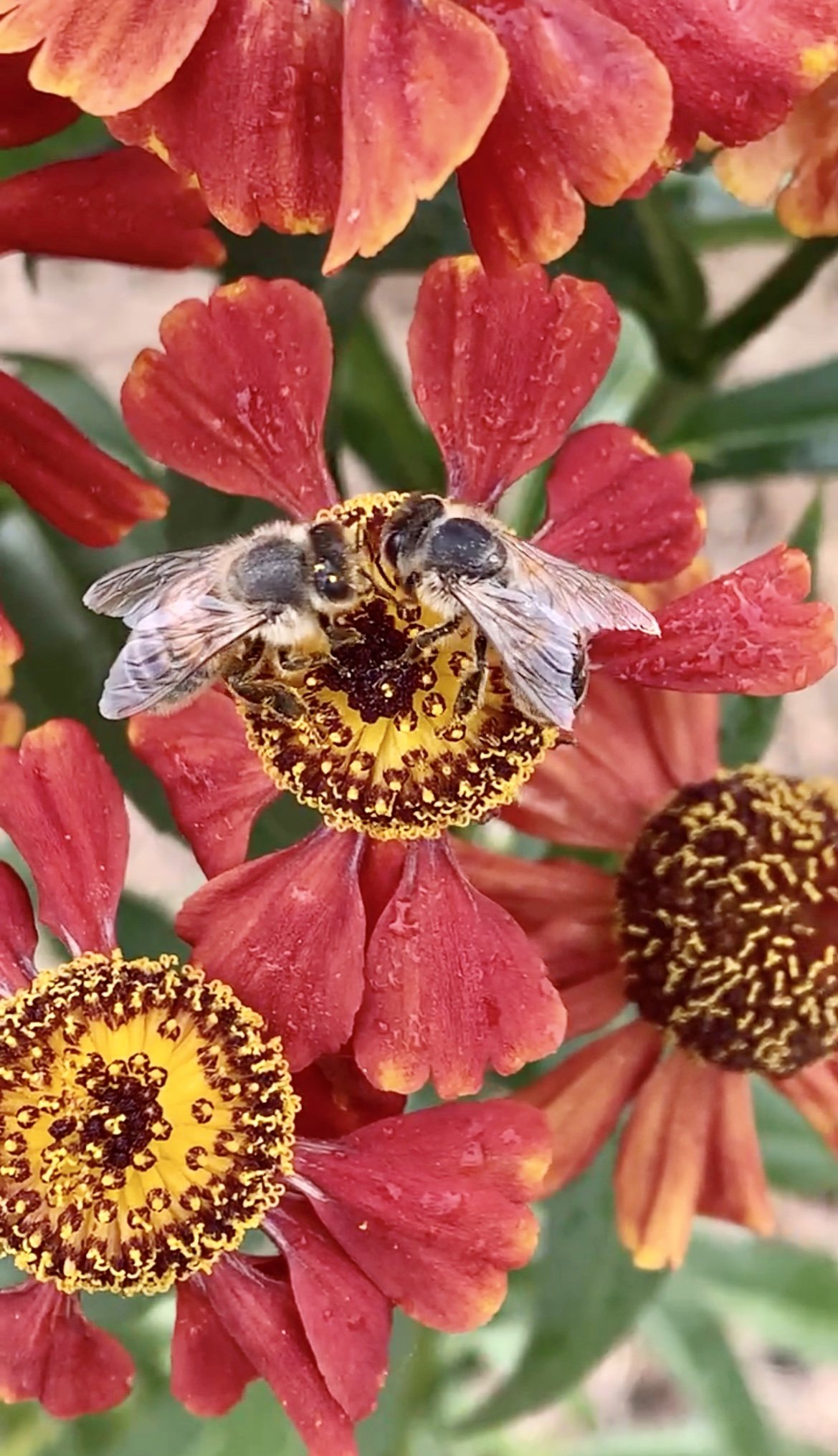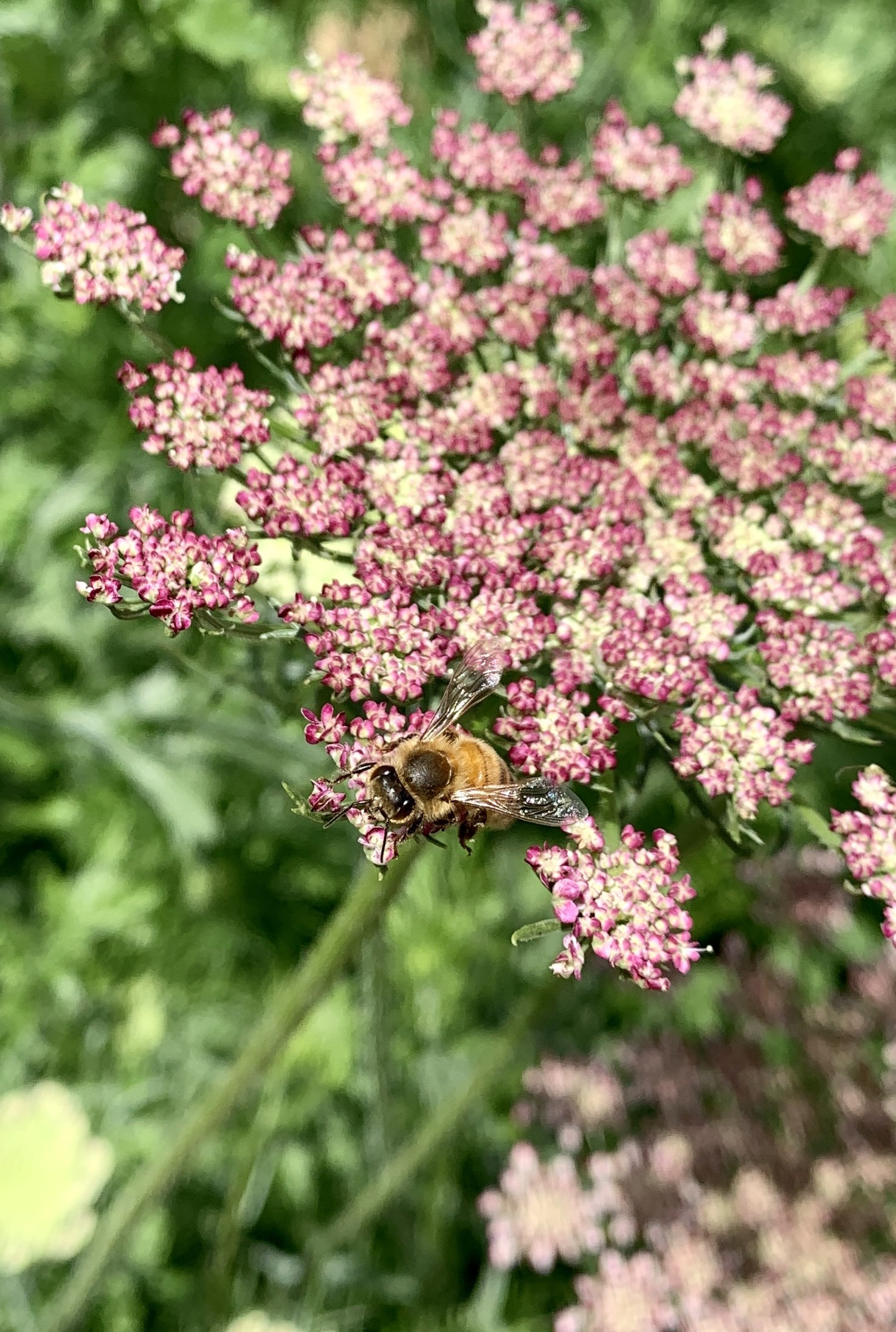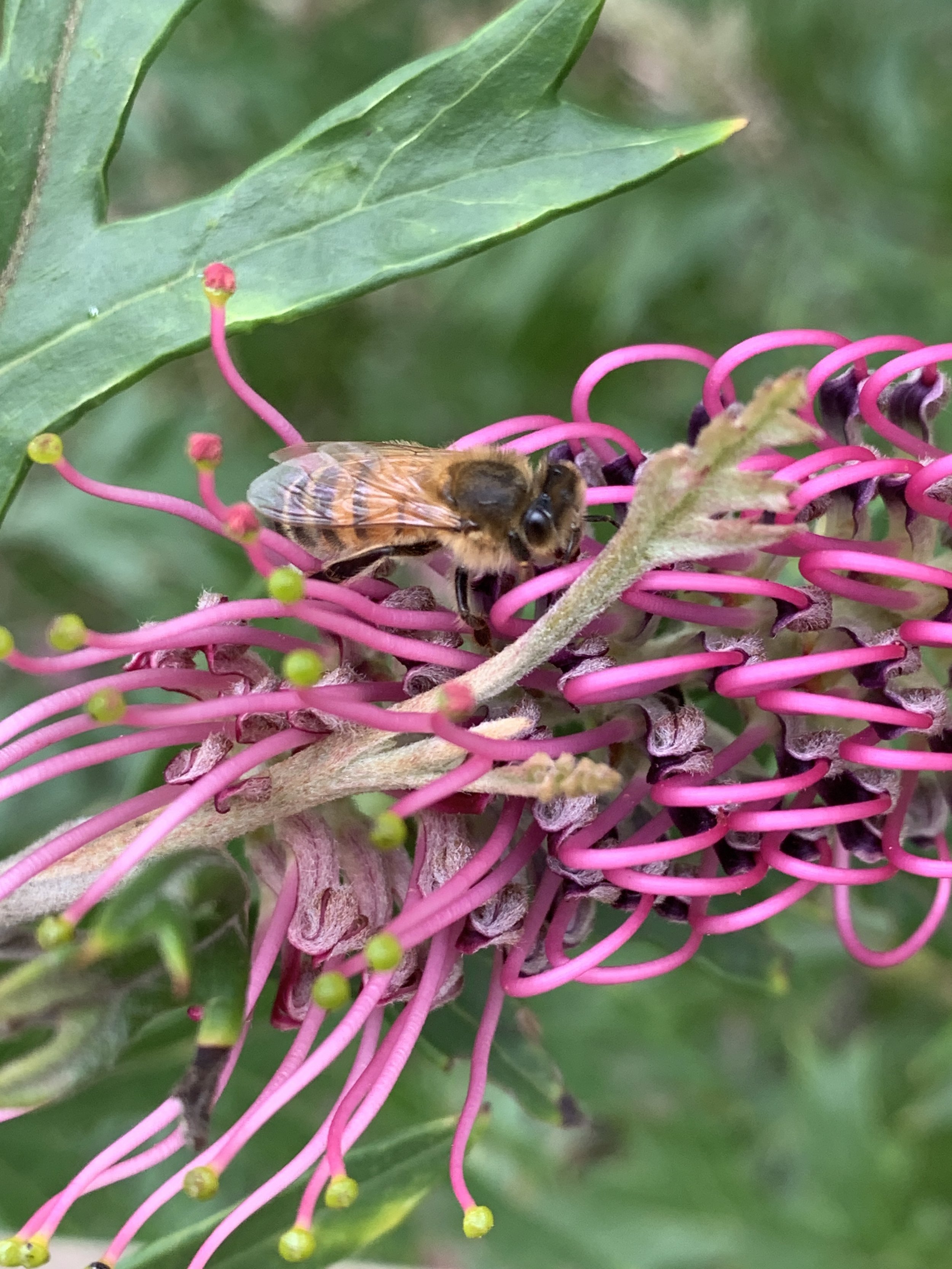
Honeybees are one of nature’s most amazing creatures, finally receiving the world’s recognition they deserve.
In fact, the honeybee has been named the most important creature on the planet (Earthwatch Institute of the Royal Geographical Society).

Over 65% of flowering plant species in agriculture and the world’s natural ecosystems are reliant on bees (and other pollinators - birds, butterflies, bats, etc.) for pollination.
At this time in history, the world’s bee populations are in danger of dying out, threatening the precarious balance of life on our planet.
The same factors threatening bees are challenges to mankind as well - global warming, drought, environmental pollution, the impact of intense agricultural practices, access to healthy and diverse foods, bacterial diseases resistant to antibiotics, habitat destruction and more. Many of those factors are manmade and within our control to reverse.
Bees are like the canary in the coal mine - they are indicators of the health of this planet.

Here are some key points that you can share to help maintain healthy bee populations:
plant flowers, shrubs and trees, that help feed the bees pollen (their protein) and nectar (their carbohydrate). There are numerous bee favourites, some of the easy ones to grow include lavender, rosemary, salvias, banksia, bottle brush and tea tree - other suggestions can be found on The Honeybee Conservancy. Also, don't forget to plant natives from your area to support local native pollinators.
DO NOT use toxic chemicals in your garden! There are non-toxic options
buy raw honey from your local beekeeper
buy organic produce where possible
leave water in your garden (with pebbles or sticks so bees don't drown) - bees can drink up to a litre of water per hive per day in summer
skip a lawn - have a wild, weedy garden instead (Weeds and bees co-evolved millions of years ago…)
make and distribute “seed bombs” - seeds of bee-friendly wildflowers, mixed into soil and clay, gently thrown in areas where flowers will grow
remember to remain calm around bees - they can sense your fear (by reading your pheromones). Swatting and shooing bees away can aggravate them causing them to think you're a threat. The best thing is to send love to the bees
build a bee hotel, or another type of habitat, for native bees and other pollinators
educate children, and everyone you know, really, on these key points
cook with honey
Photos from our Bee Garden at The Beehive, Exeter (prior to selling) ©Rebecca Campbell
Some of our favourite facts about honeybees:
They dance often (this is how they tell each other where the best flowers are)
Every female performs each job within the hive (cleaning the hive, feeding the young, feeding and attending the queen, guarding the entrance, heating and cooling the hive, gathering nectar and pollen)
They can count to 4 or 5
They know their right from their left
They DREAM! (Yes, this is scientifically proven - when given a new task in the evening, by the next day they perform the task better, showing that they have considered it while they slept overnight - dreaming…)
A hive has a few “super groomers” who specialise in keeping the other bees clean, called ALLOGROOMERS - it is shown that they have the healthiest gut microbes and spread these beneficial bacteria to those less healthy, thus raising the overall health of the hive
They will self-medicate when needed with the appropriate honey to suit their health requirements at the time.
Queen honeybees optimally will mate with up to 50+ drones (males) and only mate for an approximate one-week period in their life, storing all the sperm gathered in this short time for the rest of their life (up to 5 years in nature)
Queen honeybees can lay up to 2,000 eggs a day at the height of their season (from that store of sperm in their spermatheca
Male honeybees lose their penis, and thus their life, after mating

